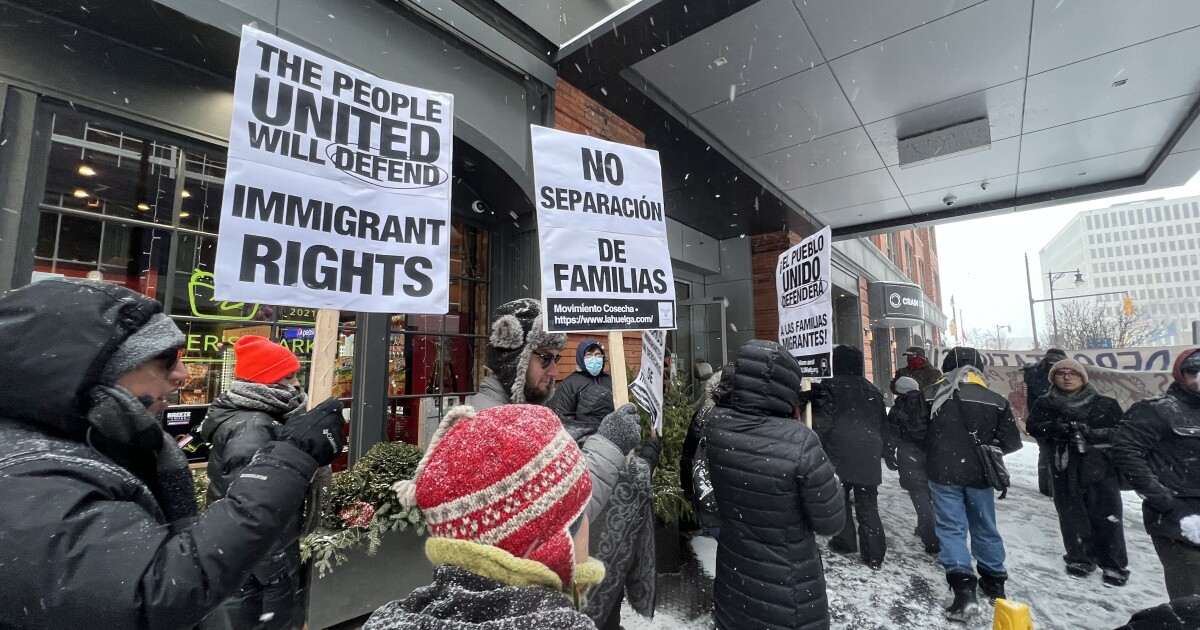Article Summary –
NEPA MR Lounge, a restaurant owned by Melissa Rivers, serves as a community hub in Plymouth, Pennsylvania, offering affordable meals while facing financial strain due to impending tariffs imposed by President Trump on goods from Mexico, Canada, and China. These tariffs, intended to encourage U.S. manufacturing, are predicted by economists to lead to higher consumer prices without increasing domestic manufacturing jobs and could negatively affect Pennsylvania farmers by diminishing export opportunities and exacerbating labor challenges. Business owners like Rivers and Misty Skolnick of Uncle Jerry’s Pretzels are preparing for increased costs due to tariffs, which may necessitate passing these costs onto consumers and adapting their business strategies to maintain operations.
Since its 2018 opening, Melissa Rivers’ NEPA MR Lounge in Plymouth is more than just a restaurant. According to Rivers, it’s a community haven where people unwind, enjoy dishes inspired by her grandmother, and forget life’s stresses.
Beneath its chandeliers, close to the Susquehanna River, the lounge welcomes everyone and offers affordable options for all. “Happy hour attracts the working class,” Rivers says, noting that patrons share stories of struggles like layoffs and family illnesses.
Rivers emphasizes the importance of maintaining her restaurant as an affordable comfort place. “Closing would be a great community loss,” she says.
Currently, Rivers isn’t planning to close but is concerned about President Donald Trump’s impending tariffs. Trump announced a 25% tariff on Mexican goods, most Canadian imports, and 10% on Chinese products, effective Feb. 4. Tariffs are taxes on imports paid by the importing business.
In retaliation, Canada and Mexico plan to impose tariffs on U.S. goods, with China considering similar actions. Global stock markets fell on Feb. 3 due to potential trade wars.
Businesses will need strategies to absorb increased import costs from Canada, Mexico, and China. Owners believe these costs could lead to higher consumer prices and reduced seller revenues.
Rivers anticipates higher costs for Mexican produce and beer, amid rising expenses like frying oil. “I’m already looking at ways to cut profits,” she says, suggesting creative solutions like offering smaller portions or cheaper ingredients to maintain customer satisfaction.

The economic fallout of tariffs
Trump’s tariffs aim to push companies to produce in the U.S., but economists argue they rarely lead to cheaper American-made products. Past tariffs on China during Trump’s first term resulted in higher consumer prices and stagnant domestic manufacturing jobs, with prices increasing.
Economists predict that Trump’s tariff strategy could reduce domestic manufacturing employment, as a survey by the Wall Street Journal showed.
“Consumers will face significant inflation; a 25% tariff is steep,” says Marc Stier, director of the Pennsylvania Policy Center. Domestic producers may raise prices as they’re no longer competing with foreign companies, increasing costs for American consumers.
Tariffs could harm Pennsylvania farmers
Besides affecting consumers, tariffs could severely impact Pennsylvania farmers. During Trump’s last term, China cut soybean purchases from the state after U.S. tariffs, causing soybean prices to collapse.
Stier warns that another trade war could financially burden farmers, especially if immigrant workers face policy pressures. With a significant portion of Pennsylvania’s agricultural workforce undocumented, farmers may struggle to maintain production.
The Pennsylvania Department of Agriculture reports that roughly 49% of the state’s agricultural workers were undocumented in 2019.
Hugh McPherson of Maple Lawn Farms urges politicians to sustain trade relations, providing farmers with financial security against climate-related losses. “We need to export to countries like China for better prices,” McPherson stresses.
A Lancaster pretzel company prepares for tariffs
Like Rivers, Misty Skolnick at Uncle Jerry’s Pretzels in Lancaster anticipates rising operational costs due to tariffs. Though they don’t import directly, increased supplier costs will affect her business.
“We use biodegradable packing peanuts,” Skolnick explains. “If tariffs affect our supplier, we’ll face increased costs.” Other crucial products, like flour and labels, could also be impacted.
Supply chain disruptions, whether from tariffs or weather events, lead suppliers to increase prices, Skolnick says. “We’ll assess cost increases and decide how much we can absorb versus what we have to pass on to customers,” she explains. Maintaining a balance between price and quality is crucial for business survival.

—
Read More Pennsylvania News









